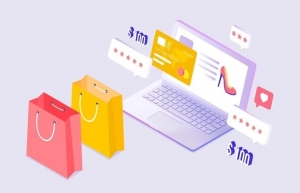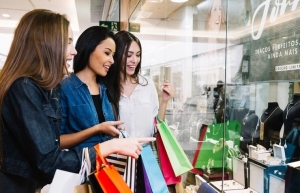INTERNATIONAL INVESTMENT
AND PORTAL
What is the biggest challenge in promoting waste classification at source and sustainable consumption in retail systems in Vietnam?
 Nguyen Trung Thang, vice director of the Institute of Strategy and Policy on Agriculture and Environment
Nguyen Trung Thang, vice director of the Institute of Strategy and Policy on Agriculture and Environment
One of the key foundations is the current policy and legal framework. Under the 2020 Law on Environmental Protection, all households must sort solid waste into three groups: reusable or recyclable waste, food waste, and other waste. This regulation will be mandatory from 2025, providing a strong legal basis for nationwide implementation.
The Ministry of Agriculture and Environment (MoAE) has issued guidelines on household waste classification. However, infrastructure for waste sorting and treatment remains unsynchronised in many localities, making classification ineffective.
Beyond policies, consumption habits are major barriers. Consumer awareness of waste sorting and sustainable consumption remains low, especially among those lacking access to environmental information. Single-use plastics are still common due to convenience and low cost.
Retailers also face challenges in applying sustainable consumption models and waste sorting, including high initial costs for equipment, staff training, and communication, particularly for small and medium-sized enterprises. There are few financial or tax incentives for pioneering retailers.
How do you evaluate the role of retail businesses in implementing circular economy and reducing plastic waste in Vietnam today?
As the direct link between products and consumers, retailers can greatly influence consumer behaviour and product choices. Many organisations are now implementing initiatives to promote waste classification and reduce plastic bag usage.
Central Retail Vietnam has been classifying, collecting, and recycling plastic waste to reduce environmental impacts. The company also encourages customers to bring their own bags or use eco-bags, sells Lohas bags at non-profit prices, and offers free carton boxes for packaging.
Lotte Mart Vietnam has installed three-compartment bins at supermarkets for customers to sort recyclable, non-recyclable, and hazardous waste. AEON Vietnam actively participates in waste classification at shopping malls and community events, with in-store sorting initiatives, dedicated bins, and clean-up activities.
Coopmart has launched schemes to raise consumer awareness about waste recycling, gradually encouraging waste sorting habits. The retailer also attracts customers through environmental activities at stores.
TH Group is also the first dairy company in Vietnam to use bags made from biodegradable materials, while applying modern technology to reduce the amount of plastic in product packaging.
Retail businesses can also play a role in introducing and distributing environmentally friendly alternative products, thereby encouraging the growth of the green market. Supermarkets and convenience store chains can prioritise displaying and positioning brands for bio-packaging products, recycled products, and products with environmental certification.
Retail systems can proactively participate in collecting, sorting, and recycling post-consumer packaging. In addition to practical actions, retail businesses can also play a role in educating consumers through communication activities, training sessions, or by incorporating environmental messages at the point of sale.
What policy or support mechanisms would you recommend to help businesses and communities engage in waste sorting and recycling as Vietnam seeks to cut plastic waste?
In the context of Vietnam setting ambitious goals to reduce plastic waste and move towards a circular economy, designing and implementing policies to enhance recycling is crucial.
One key tool is the extended producer responsibility mechanism, requiring packaging manufacturers, producers, and importers of plastic products to take financial and technical responsibility for collecting, recycling, or treating post-consumer waste. The MoAE is developing a decree to guide implementation under the 2020 Law on Environmental Protection. This decree will specify business obligations for recovering, recycling, and treating post-consumer products and packaging.
Additionally, imposing fees on single-use plastic bags, non-recyclable packaging, and disposable products could effectively shift behaviour.
Localities need specific waste classification guidelines based on their economic and social conditions, along with investments in infrastructure for waste collection, transport, and treatment. Provinces and cities must also develop and implement programmes to minimise single-use plastics and non-biodegradable bags in line with the law.
What are your expectations regarding the long-term impact of plastic waste and nylon bag reduction initiatives on people’s awareness and consumption behaviour, especially in large cities?
I expect that if implemented cohesively, the initiatives aimed at reducing plastic waste and nylon bags will bring about fundamental changes in consumer awareness and behaviour, especially in large urban areas where consumption levels are high and waste pressure is significant.
In the long run, people will become more aware of the harmful effects of plastic waste, thereby cultivating responsible consumption habits, prioritising eco-friendly products, and refusing single-use plastics. Engaging the participation and collaboration of retail units can create strong ripple effects in changing consumer habits and behaviours, contributing to reducing the use of plastic bags and single-use plastic products.
 Retailers pressured to adapt their tactics
Retailers pressured to adapt their tactics
New trends emerging in the retail sector and changes in customer shopping preferences are directly impacting the business strategies of many retailers.
 Retailers roll out seasonal offers
Retailers roll out seasonal offers
Retailers and e-commerce platforms have implemented several promotion programmes to lure consumers amid tightening consumer spending.
 Retailers embrace revenue-boosting strategies
Retailers embrace revenue-boosting strategies
The future of retail in Vietnam is becoming increasingly digital, with businesses adopting omnichannel and livestreaming strategies to drive growth and revenue.



















